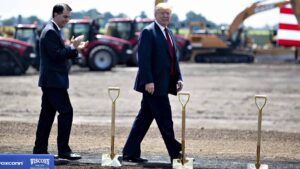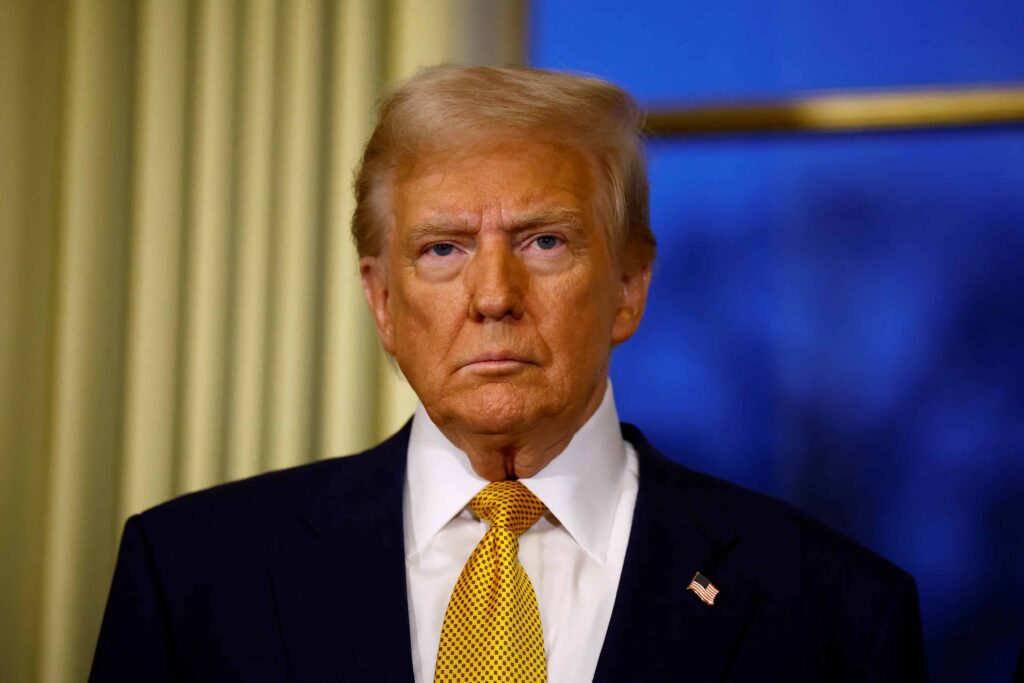President-elect Donald Trump has introduced a bold plan to attract massive investments to the United States. In a social media post on Tuesday, Trump announced that companies or individuals investing $1 billion or more in the U.S. would qualify for expedited permits and approvals, including environmental clearances. The initiative aligns with Trump’s promises to revive American manufacturing, reduce regulatory hurdles, and create jobs.
Trump’s statement promised “fully expedited approvals and permits, including, but in no way limited to, all Environmental approvals” for qualifying investments. He added his signature enthusiasm, urging companies to “GET READY TO ROCK!!!” The announcement has sparked widespread discussion, with supporters praising the move as a way to boost the economy and critics raising concerns about its potential environmental and public safety implications.
Throughout his campaign, Trump emphasized the importance of revitalizing domestic manufacturing, which has seen a significant decline over the past few decades. By pairing the threat of tariffs on imported goods with incentives like streamlined permitting, Trump aims to make it more attractive for companies to invest in and produce goods within the United States. He argues that this combination will make U.S. companies more competitive and encourage foreign businesses to relocate operations to American soil.

The plan also signals Trump’s commitment to cutting government red tape. Reducing regulatory burdens has been a key priority for the president-elect, particularly in industries like energy, infrastructure, and manufacturing. His proposal to incentivize $1 billion investments comes as part of broader efforts to overhaul the federal government’s approach to permitting and approvals.
In line with these efforts, Trump’s administration is launching the Department of Government Efficiency (DOGE), a new agency tasked with reducing unnecessary regulations and streamlining government operations. Billionaire entrepreneurs Elon Musk and Vivek Ramaswamy will lead the department, bringing their disruptive expertise to reimagine how federal agencies operate. Musk, whose companies Tesla and SpaceX operate in heavily regulated industries, shared Trump’s social media post on X (formerly Twitter), calling the proposal “awesome.”
While the initiative has been welcomed by many in the business community, it has also sparked concerns among environmentalists, public health advocates, and safety experts. Critics warn that fast-tracking permits could lead to oversight failures, resulting in environmental damage, public health risks, and safety hazards. Lisa Thompson, director of the Environmental Protection Network, described the plan as a “dangerous precedent” that could undermine vital protections.
Permitting processes are governed by longstanding laws, such as the National Environmental Policy Act (NEPA), which mandates rigorous environmental assessments and public input. Critics argue that Trump’s plan may face legal challenges if it bypasses these safeguards. However, proponents contend that cutting bureaucratic delays will help businesses bring projects to market faster, creating jobs and spurring economic growth.

Elon Musk’s endorsement of the proposal has added weight to its credibility, particularly among businesses operating in regulated sectors. Industry leaders see the initiative as an opportunity to accelerate innovation and growth while reducing operational hurdles. Peter Clark, CEO of an advanced manufacturing firm, called the plan “exactly the kind of policy we need to jumpstart American innovation.”
Despite its potential benefits, the proposal faces significant challenges. Overhauling permitting practices across federal agencies will require coordination and may face resistance from advocacy groups. Moreover, questions remain about how Trump’s administration will ensure accountability and prevent potential abuses of the expedited permitting process.
The plan also comes with economic risks. While reducing regulations and imposing tariffs could make U.S. companies more competitive, critics warn that these measures might also drive up production costs, contributing to inflation. This could result in higher prices for consumers, potentially offsetting the benefits of increased domestic investment.
Trump’s proposal reflects his broader approach to governance—combining bold promises with a focus on economic growth and deregulation. As he prepares to take office, the business community is gearing up for potential opportunities under the new policy while advocacy groups remain vigilant about its risks. The success of Trump’s fast-track initiative will depend on how effectively it balances these competing priorities and delivers on its promises. For now, the plan signals a significant shift in how the U.S. government approaches investment and regulation, setting the stage for a new era of economic policy under the Trump administration.

